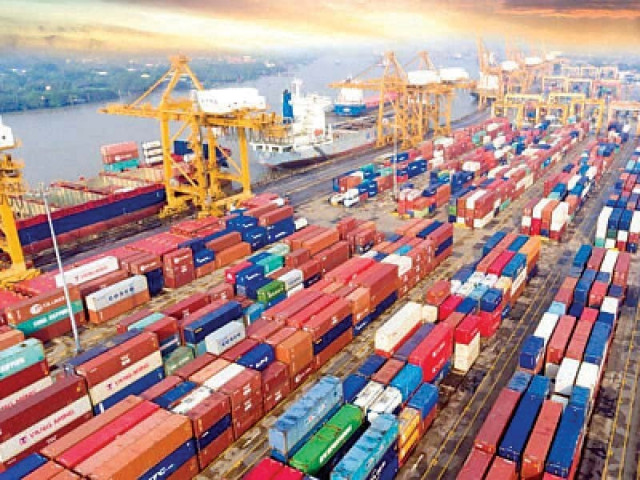Policy adjustments proposed to revitalise economy
Business leaders urge government to collaborate with community ahead of upcoming budget

Prominent businessmen and industry leaders have presented a series of essential policy adjustments to revitalise Pakistan’s economy, emphasising the upcoming budget for the fiscal year 2023-2024 as a golden opportunity to foster growth, innovation, and sustainable development across various sectors.
Leading a delegation from the Federation of Pakistan Chambers of Commerce and Industry (FPCCI) to meet with Finance Minister Ishaq Dar, President of FPCCI Irfan Iqbal Sheikh, highlighted the significance of the upcoming federal budget. Sheikh stressed the need for the government and the business community to collaborate and introduce measures and policies that would facilitate industrial growth, explore import substitution avenues, and revive struggling units through targeted fiscal measures.
The Pakistan Business Forum (PBF) has also called on the government to implement effective economic measures, including in the upcoming federal budget, to encourage business activities in the country while promoting austerity measures in the public sector.
Speaking to the Express Tribune, PBF President Mian M Usman Zulfiqar emphasised the establishment of export warehouses at borders to boost trade with neighbouring countries. The committee members also recommended incorporating the agriculture and service sectors into the tax net for a more inclusive economy.
To achieve a 6% GDP growth in the next financial year, the budget makers have been urged to reduce tax rates, broaden the tax base, and curtail the parallel economy. These measures are essential to give Pakistan’s products a competitive edge in global markets.
Addressing the unavailability of foreign exchange and declining inflows, President of the Karachi Chamber of Commerce and Industries (KCCI), Muhammad Tariq Yousuf proposed allowing importers to arrange payment or remittance of foreign exchange through their own sources outside of Pakistan. Yousuf further suggested that importers should directly receive their import documents from suppliers, bypassing the involvement of domestic commercial banks. He criticised the commercial banks for charging vastly differing rates of US dollars and favouring clients with high-volume trade, neglecting small and medium-sized enterprises (SMEs).
Yousuf also stressed the need to restrict direct financing by importers to raw materials, essential items, and machinery. He urged comprehensive consultation with stakeholders to expand the definition of essential items determined by the State Bank of Pakistan (SBP), as many vital items are currently excluded, causing delays in opening letters of credit (LCs). Luxury item imports should not be permitted under self-financing arrangements. Yousuf proposed limiting imports up to US$10,000 per month to registered importers through registered bank contracts.
The PBF president highlighted the country’s historical GDP growth, pointing out that Pakistan has achieved over 5% growth only three times in the past three decades. He stressed the untapped potential of information technology and its ability to boost industrial production. Zulfiqar estimated that Pakistan’s digital finance potential could reach $36 billion in the next four years, contributing a seven percent boost to the GDP and generating four million new jobs.
Meanwhile, the FPCCI president emphasised the importance of the textile sector, which accounts for almost two-thirds of Pakistan’s exports, amounting to $19.3 billion in FY22. Sheikh called for measures to ensure a steady supply of cotton, the sector’s primary raw material, by incentivising cotton cultivation. He stressed the need for access to finance for the industry, as capital is vital for its smooth operation and expansion.
Furthermore, Sheikh advocated for discounted and affordable export finance, along with subsidised finance for plant machinery in sectors such as leather, surgical equipment, sports goods, pharmaceuticals, and SMEs that have the potential to enhance export volumes and create more job opportunities. He proposed the full operationalisation of export processing zones, special economic zones, and special technology zones in collaboration with friendly countries like China, South Korea, and Malaysia, supported by funding programs from developmental and international financial institutions.
The FPCCI president also called for reforming the Federal Board of Revenue (FBR) to play a facilitative role in industrialisation. He emphasised the need to tackle corruption, harassment, maladministration, and red tape, advocating for complete digitalisation of the FBR’s operations and procedures.
Published in The Express Tribune, May 21st, 2023.
Like Business on Facebook, follow @TribuneBiz on Twitter to stay informed and join in the conversation.



















COMMENTS
Comments are moderated and generally will be posted if they are on-topic and not abusive.
For more information, please see our Comments FAQ